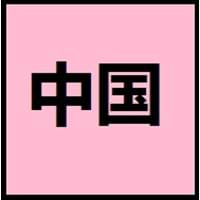Swahili vs Chinese
- Swahili language has borrowed many words from Arabic language.
- The oldest written scripts in swahili language were found in 18th century.
- Chinese language is tonal, since meaning of a word changes according to its tone.
- In Chinese language, there is no grammatical distinction between singular or plural, no declination of verbs according to tense, mood and aspect.
Swahili and Chinese Language History
Comparison of Swahili vs Chinese language history gives us differences between origin of Swahili and Chinese language. History of Swahili language states that this language originated in 6th century whereas history of Chinese language states that this language originated in 1250 BC. Family of the language also forms a part of history of that language. More on language families of these languages can be found out on Swahili and Chinese Language History.
Swahili and Chinese Greetings
People around the world use different languages to interact with each other. Even if we cannot communicate fluently in any language, it will always be beneficial to know about some of the common greetings or phrases from that language. This is where Swahili and Chinese greetings helps you to understand basic phrases in Swahili and Chinese language. Swahili word for "Hello" is Habari or Chinese word for "Thank You" is 谢谢 (Xièxiè). Find more of such common Swahili Greetings and Chinese Greetings. These greetings will help you to be more confident when conversing with natives that speak these languages.
Swahili vs Chinese Difficulty
The Swahili vs Chinese difficulty level basically depends on the number of Swahili Alphabets and Chinese Alphabets. Also the number of vowels and consonants in the language plays an important role in deciding the difficulty level of that language. The important points to be considered when we compare Swahili and Chinese are the origin, speaking countries, language family, different greetings, speaking population of these languages. Want to know in Swahili and Chinese, which language is harder to learn? Time required to learn Swahili is 36 weeks while to learn Chinese time required is 88 weeks.





